 What's Wrong With American Health Care?
What's Wrong With American Health Care? What's Wrong With American Health Care?
What's Wrong With American Health Care?by Theresa Welsh
|
What's wrong with American healthcare? Personally, I'm almost totally disillusioned with our so-called "health care system" which isn't a "system" at all but a patchwork of insurance companies, big health care corporations, disconnected provider organizations and monolithic charity operations, all with their own goals and all looking for health care dollars. Lots of our hard-earned money is poured into these institutions, which are supposed to provide us with health care. But mostly it provides them with profit and us with an insecure, inefficient and frequently ineffective means of receiving health care services. INSURANCE MODEL DOES NOT WORK
INEQUALITY OF SERVICESMaybe some people oppose government-funded health care because they do not want everyone to have the great medical services they have. In America, we have big-time inequality of health care services. The well-insured get all the services they need, and more, while the uninsured and poorly-insured may be unable to get even life-saving treatments, let alone regular trips to the doctor. This leads to distortions in our so-called health care system.
GAMING THE SYSTEMInsurance companies have been creative in finding ways to eliminate subscribers who might be costly. Originally, they just dropped anyone who ran up too many health care bills. Then Congress said they had to take everyone when supplying insurance to employer groups, so within groups, they could not pick and choose who to insure. But if a person switched to a new policy when they changed jobs, they could be excluded based on health status. That led to "job lock" where people with a sick child or spouse were afraid to change jobs because they would lose their insurance. Various state and federal laws tried to do away with this too and made health insurance through your job more secure, but still dependent on the largesse of your employer to continue providing it. As costs rise, more employers opt out or pass on most of the growing cost to their employees.
SELF-EMPLOYED EQUALS UNDERINSURED OR UNINSURED
Throughout our married lives, we bounced from one bad plan to another. From one expensive plan to another. That's how it is for people who don't work for a big company that provides good group coverage. That's a lot of people, maybe more all the time as increasing numbers of people work free-lance, on contract, part-time or just change jobs frequently in our continuing poor job market. Insurance companies claim they are providing Americans with healthcare, but they are really providing themselves with huge profits off the fears and insecurities of the American people who continue to buy their flawed products (and now are being FORCED to buy their products by the Affordable Care Act, also known as Obamacare). Insurance companies are so entrenched in our country that most people don't even question their role. PROFIT-DRIVEN PROVIDERSHealth care in America is a commodity, although it is paid for through a labyrinth of organizations, each skimming off their share of health care dollars. In America, you do not have a right to health care; you must purchase it, usually through a middleman, the insurance company. Although medical doctors, through their organization, the AMA, initially opposed insurance as a payment mechanism when it first appeared during the World War II years, thinking it would reduce their control over medical services, they later embraced it and even offered their own plan, the Blue Cross companies. In the beginning, these operated with a "social insurance" model with the stated purpose of pooling subscribers to spread costs, and they were non-profit. But that has changed, as the medical profession pursued the dollars they could collect from the well-insured and decided to ignore everyone else. Most of Blue Cross companies today are for-profit and even if they are ostensibly non-profit, they operate the same as the for-profits. Today we have a system where providers provide what insurance companies will pay for. Doctors like to pretend they are independent and are offering the treatments that are best for their patients, but aren't they really just doing what the insurance companies dictate? No Insurance? No Service! Doctors have embraced health insurance to the point of not wanting to serve patients who lack insurance, even if those people have cash to pay for services. Like their patients, they have lived with the insurance model for so long, most have adjusted to it. Their prices are now so high (another by-product of insurance and the extra layer of costs it adds) that they don't believe anyone can or will pay them without insurance. How ironic! My cash is no good - I must have that precious insurance card to get in the door. WHAT'S THE PRICE FOR A MEDICAL SERVICE? NO ONE KNOWS
Social Responsibility? Health care used to have a heavy "social responsibility" overtone, with many religious organizations operating hospitals or clinics. Where I live, we have health organizations with names like "Providence," "St. John," "Mercy" and "St Joseph" that used to have a social mission to provide people with health care, but now are profit-driven. Yes, it costs money to operate hospitals and they cannot stay in business if they don't take in money, but shouldn't we question why medical care has gotten so expensive and why we continue to tolerate a system that excludes so many people from access to care? How is this progress? WHO SHOULD PAY? WHO SHOULD GET PAID?Most countries of the world have opted for government-funded health care, and their citizens like it. In Great Britain, people are so fearful of any attempt to privatize their National Health Service that even Conservative Prime Minister David Cameron had to promise he would never take away their universal health care. Canadians regularly make fun of our backward health care, and I have read two novels (one written by a Canadian) in which the plot revolves around insurance companies having hit men eliminate people who cost too much. A bit extreme maybe, but it's in the interest of insurance companies to eliminate these folks as customers or to find ways to not pay for their care. Why not hire some thugs to do away with kids born with fatal diseases or accident victims who will require lifelong care? Insurance companies are all about making money, not providing care. Are we too arrogant to study the successful medical systems in other countries? Only "made in America" will do? Private insurance tied to people's employment is a ridiculous way to provide health care and only WE don't see it! Doctors as "Slaves?" Doctors generally oppose government-funded care for all and recently I've heard one of the stupider reasons from Senator Rand Paul (who is a doctor). He claims that universal health care would force doctors into a kind of slavery because he claims that they would be forced under law to provide services to whoever needs them even if they can't pay and doctors would thus be forced to work for free. First, there are some situations in our present system that already do require medical care facilities to provide stabilizing treatment in emergency cases. This is under a kind of half-hearted belief that we should not just let people die when treatment is right in front of them and could save their lives. So Emergency Rooms already have to provide some services, but that does not mean the doctor does not get paid. Rand Paul mistakenly ties the responsibility to the doctor, but clearly under a national policy of universal health care, the onus is on the government to provide (and pay for) needed services. I doubt doctors in Canada and Great Britain think of themselves as slaves.
Government-funded health care is "free" to those who need it, but it is not "free" to society. What it does is take the principle of "pooling" to the highest level and puts all Americans in the same pool, spreading risk evenly throughout society, and paid for with taxes. When you have a big income, you pay more. When you have a small income, you pay less. But you always get the service. It eliminates the insecurity most Americans feel about their health care. When you only get health care when you can pay the insurance premium and/or you continue to have a job that provides insurance, it leaves you with a lot to worry about. WHO GETS WHAT SERVICES?Eliminating insurance companies and giving everyone the same set of covered services would eliminate the inequality of care we now have. Everyone would get services, regardless of employment status or income. There would be no incentive for providers to seek out some patients and try to avoid others based on their insurance status. But what services would everyone get? There needs to be an overall design to health care, an agreed-upon level of services that actually provides benefit to patients, not just profits to hospitals, doctors and drug companies. Today, we have a smorgasbord of high tech procedures and new expensive drugs that are often just variations on older cheaper drugs. The profit motive produces ever more potential services, treatments and drugs for which we can spend money. Which are really worthwhile and for whom? These questions need answers, and I can't provide them here. Runaway Costs
Screening is NOT prevention Even screening tests are oversold, as if they will keep us from getting the disease they are screening for. Mammograms are touted as "breast cancer prevention" but they are no such thing. In fact, the exposure to radiation involved actually CAUSES cancer! Assuming the machine used is correctly set and the technician operating it is well-trained (and these are often not valid assumptions), the exposure is small, but it does add up; the effect of readiation exposure is cumulative. Screening tests are promoted on the idea that early detection means a better chance of effective treatment, but there are other opinions on this which hold that often early detection makes no difference. However, it DOES lead to unnecessary (and expensive) biopsies and treatments for an anomolous finding that may not be an actual problem. A tiny spot seen on a mammogram may never become cancer, but may be treated aggessively (and expensively) anyhow. Treatments can trigger side effects requiring more treatments. Women can end up having a breast removed. Men having surgery for prostate cancer risk impotence. Are these questionable treatments really in our best interests, or just in the interests of those who profit from them? Are "Preventive" Services Worth Their Cost? Speaking of preventive care, Obamacare (see the section below), which became law in 2010, makes insurance companies cover "preventive care" completely. Given the profit-driven nature of healthcare in America, this leads to aggressive promotion of screening programs which further runs up the already exorbitant premiums we are forced to pay. Some of these services may have some value for some people, but where does this philosophy end? So-called "preventive care" is another oversold service that is offered precisely because there is insurance to pay for it; benefits to patients is a secondary consideration. If you doubt this, I recommend Dr. Gilbert Welch's book, Overdiagnosed (See link to my review of this book below). IS HEALTH CARE WORTH WHAT WE PAY FOR IT?
If you go to the doctor for a pain in your hip, you will get a battery of expensive tests that probably reveal nothing and maybe a prescription for some expensive drug you must take forever and, after spending a ton of money, you still have the pain in your hip. You may also later have a bunch of side effects from the expensive drug you must take forever, but, hey, the doctor can prescribe more expensive drugs to counteract those effects. Who hasn't had an older family member who has a dresser-top full of pill bottles, but has no idea why he's taking any of the stuff in the bottles? I am determined that this will NOT be me! Hospitals are supposed to help us, but thousands of people get infections in the hospital or are victims of medical errors leading to more sickness and more expense. Hospitals get MORE money when they make people sicker! Do doctors suggest surgery far more often than it makes any sense? Isn't it posible that this is because surgery is what they do and it is very profitable? Of course, medical people will say that patients demand services and prescriptions and doctors merely give them what they want. But I seriously doubt that. I think doctors just don't know what to do about a lot of the health complaints that people have and they fall back on writing a prescription, ordering tests or doing surgery that is lucrative for them! They are not healers; they are technicians. Over my lifetime I have lost most of my respect for them. They make a lot of money for the little benefit they provide and the unpleasant and financially disastrous experiences they put us through.
Scammers Sell "Insurance" That Doesn't Pay For Anything Millions of self-employed people have discovered that insurance can be so thin it barely rises above the level of a scam. And sometimes it IS a scam. Unscrupulous salesmen preying on peoples' fear of being without insurance sometimes sell plans that are actually just discount programs but sold as insurance, or that turn out to not actually pay for much of anything. I once got stuck with a $2500 bill for a few hours in the Emergency Room which I expected my "insurance" to pay, but for which it paid nothing. I was, however, paying a hefty monthly fee for this so-called "insurance." My own negative experiences have led me to feel much of "insurance" is actually just a rip-off. Like other Americans, I have paid their exorbitant premiums because I did not want to be without coverage and put up with the sneers of those with great employer-paid coverage who claim it is "selfish" to not buy insurance. Do they really think the self-employed or minimum-wage worker has any access to the great coverage they have? Doesn't the excessive use of medical services by the well-insured run up the cost of premiums? Just who is being selfish? THE PROOF IS IN THE NUMBERSThen there's the matter of our poor health outcomes compared to other industrialized nations. A report by the Robert Wood Johnson Foundation and the Urban Institute looked at 19 developed countries and how well their health care systems kept people from "preventable deaths" through providing necessary treatments. The US ranked DEAD LAST!! Not surprising for a country where the only people with a right to health care are prisoners (that's right, if you are in jail, the state must pay for your medical care); the rest of us have to have an insurance card to get served, then we still have to hope our expensive insurance will actually pay for our treatment. Canadians and Europeans with government-funded health care live longer than we do and their babies don't die as frequently as ours do. The US ranks 31st in life expectancy (tied with Chile!) and 34th in infant mortality. The only group of Americans who rank higher than average in life expectancy are Americans over the age of 65. That may well be because if you reach that age, you have Medicare and are no longer dependent on private insurance for your health care. WHAT'S WRONG WITH THE Patient Protection and Affordable Care Act?
|
|
Giving Insurance Companies What They Want - Us, In Their Clutches Do state or federal "insurance exchanges" really help people find health insurance they can afford? It appears to vary by state and circumstances, but at least the exchanges provide a place to go and find and compare plans, and the new law eliminates the "scam" plans that don't really cover much of anything. But many will find they cannot afford the plans that are offered or do not think they are worth the money. Is it really right to force everyone to buy health insurance? The Supreme Court has settled the legality of the "individual mandate," but I still think it is basically a bad idea. Obama thought so too during his campaign, but his advisors rightly pointed out that insurance companies would not stop their discriminatory practices unless they got everyone into their net. The theory is that you need the young and healthy to sign up along with those who desperately want and need health insurance. Therefore you must make having insurance mandatory. |
“ It is hard to conceive of a system that is harder to understand, more difficult to adhere to, more expensive to implement and operate, and less conducive to the public welfare than the one that currently burdens patents and providers alike.” ~~ Dr. Douglas A. Perednia, Overhauling America's Healthcare Machine |
 AFFORDABLE??? Ha! Ha! Maybe the worst thing about this health care law is its name -- "AFFORDABLE Care Act." As long as we have insurance companies in charge of our health care and no controls over which services should be provided as part of an effective healthcare system, our health care will never be "AFFORDABLE." The capitalist model means more companies coming up with more medical services and products that cost ever more money, with no brakes on what they can charge. Health care services, like rents in New York City, are just too damn expensive!
AFFORDABLE??? Ha! Ha! Maybe the worst thing about this health care law is its name -- "AFFORDABLE Care Act." As long as we have insurance companies in charge of our health care and no controls over which services should be provided as part of an effective healthcare system, our health care will never be "AFFORDABLE." The capitalist model means more companies coming up with more medical services and products that cost ever more money, with no brakes on what they can charge. Health care services, like rents in New York City, are just too damn expensive!
Is This the Best We Can Do? I wish President Obama had used his obvious intelligence to analyze the problem a bit further and use his charm and oratory skills to show and persuade Americans that government-funded health care is really the only solution to our long-time healthcare hell. I wish he had worked even harder for a system that would actually bring health care equality to all Americans. Instead, he never challenged the insurance companies or the drug companies and he gave them all the seats at the table in the apparent belief that this plan was the best we could do. President Obama was too much of a pragmatist and not enough of a visionary on what is possible. It is disappointing that we did not get something better than the so-called "Affordable" Care Act" which is anything but "affordable."
My comments on Obamacare
Website Problems Yes, the Obamacare architects shot themselves in the foot with that disastrous rollout, which was NOT an auspicious beginning. I spent over 20 years working in IT, including some big software projects, and I know failure is common. I've seen projects end up getting scrapped because they didn't work or the client didn't like what he got. However, health care reform will succeed or fail, not on the quality of a website, but on whether people can actually get and keep good health insurance that they can actually afford, and that actually covers enough of their costs to be useful. Websites can be fixed; bad policy is a much more difficult problem. Obamacare has continued to be vilified because of unintended consequences and failure to fix the basic problem that health care costs too much and insurance only makes it more expensive.
Yes, the Obamacare architects shot themselves in the foot with that disastrous rollout, which was NOT an auspicious beginning. I spent over 20 years working in IT, including some big software projects, and I know failure is common. I've seen projects end up getting scrapped because they didn't work or the client didn't like what he got. However, health care reform will succeed or fail, not on the quality of a website, but on whether people can actually get and keep good health insurance that they can actually afford, and that actually covers enough of their costs to be useful. Websites can be fixed; bad policy is a much more difficult problem. Obamacare has continued to be vilified because of unintended consequences and failure to fix the basic problem that health care costs too much and insurance only makes it more expensive.
"If you like your insurance, you can keep it" President Obama famously told Americans they could keep their health insurance under Obamacare, but it turned out that some people who had non-group insurance have had their insurance canceled, and some of them publicly complained about it and Obama-haters siezed upon it as evidence that Obama lied. Well, it seems to me that this is just more proof of how little anyone in this big country of ours (including the Obamacare authors) really ever understood about the so-called "individual market," that insurance hell to which those of us without job-based group converage were consigned. Insurance companies could always do whatever they wanted (charge as much as they liked and cover as little as possible). As I said earlier in this rant, why would they sudenly change? I doubt that many of those being canceled actually "liked" their insurance (certainly not, if they ever had a major illness), but some may have had lower premiums than an Obamacare "bronze" plan if they were healthy, had never made many claims and had bare-bones coverage. In fact, most of those who were purchasing individual coverage can buy better coverage on the exchanges, but they may have to pay more for it. Obama didn't lie, he just didn't understand that people in non-group plans (the very people suffering with high prices and poor benefits) were at the mercy of the insurance companies who could always find ways to cancel their coverage. These canceled policies, along with rising premiums on the exchanges, are indications of the extent to which insurance companies are still in charge.

COVERAGE ? -- Oh Yeah, We Got Coverage, But Have We Got Health Care?
Campaigning for President in 2016, Hillary Clinton stated that Obamacare has taken us to "90% coverage" with health insurance. The "individual mandate" forces everyone to purchase health insurance or pay a fine. So, 90% of us have COVERAGE. What exactly does that really mean? COVERAGE means making monthly payments to a for-profit insurance company for an insurance product that will probably come with deductibles (as high as $10,000 and even higher for some) and copays on each visit to the doctor and each prescription. A 20% copay on a $5000 drug you must take every month means it is still unaffordable for most people. Paying for COVERAGE provides only a chance that you will actually get the health care you need. It is a huge gift to insurance companies and requiring such COVERAGE is a huge burden on the American people.
COVERAGE is NOT health care!!!!
Premiums, Deductibles, Copays Rise and Become Unafforable Insurance companies are going to keep raising the premiums for people who buy on the exchanges (who already have to pay those big deductibles before their insurance pays for anything). Paying these premiums will be a big monthly expense for many, reducing the income they have left for necessities like food and shelter. But the premium is not the end of their medical expenses. People who have been prescribed a drug that some greedy drug company has decided to reprice to an astronomical level may find thier copay for that drug so unaffordable they will be unable to remain on the drug. But they STILL must pay their health insurance premiums or face a fine. This kind of "insurance" is not providing healthcare security.
Medical Bankruptcies are Still Happening In Massachusetts where they had a law similar to Obamacare before Obamacare, medical bankruptcy rates did not go down much, and there is growing evidence that medical bankruptcies are continuing since Obamacare has been enacted. The out-of-pocket costs can be so high that many people still find the bills piling up when a family member is sick. The Bronze plans are so skimpy (paying only 60% of covered services) that they are not really worthwhile and leave people exposed to bankruptcy. But, under the Affodable Care Act, you MUST purchase insurance.
 Is Change Possible? Hillary's surprise rival for the nomination, Senator Bernie Sanders, was the first person to run as a Democrat in many, many years to support ACTUAL universal health care for all Americans as a right. Universal health care was once a staple of the Democratic Party platform, until it was replaced by "everyone should have health insurance." The Republicans, of course, generally oppose anything but "free market" medicine (as if that were even possible in health care, which is not the same thing as buying a refrigerator or some other optional consumer purchase). In either case, no one seems to be talking about ways to reduce the overall costs. Unaffordable health care is unavailable health care. It seems both parties have been seduced by the special interests who profit from keeping insurance companies in charge of our health care.
Is Change Possible? Hillary's surprise rival for the nomination, Senator Bernie Sanders, was the first person to run as a Democrat in many, many years to support ACTUAL universal health care for all Americans as a right. Universal health care was once a staple of the Democratic Party platform, until it was replaced by "everyone should have health insurance." The Republicans, of course, generally oppose anything but "free market" medicine (as if that were even possible in health care, which is not the same thing as buying a refrigerator or some other optional consumer purchase). In either case, no one seems to be talking about ways to reduce the overall costs. Unaffordable health care is unavailable health care. It seems both parties have been seduced by the special interests who profit from keeping insurance companies in charge of our health care.
Would electing Bernie actually have gotten us what all polls show most Americans want, true universal, government-funded health care? Well, no, because most members of Congress owe their election to financing from billionares who don't want us to have what every other advanced nation on earth has, so it does not seem likely that they will pass universal health care. But I supported Bernie because he is right that we must replace insurance companies with publicly-funded health care for all. Change will come when lots of Americans send Congress the message that we want a health care system that is fair and (truly) affordable (not just labeled "AFFORDABLE Care Act.").
Repeal and Replace? Republicans who vow to "repeal and replace Obamacare" will do no such thing. They will find repeal more difficult than their slogans make it seem and they have no replacement. Healthcare as it operates in the US is extremely complex, but very important to all of us. Obamacare has provided access to care for many people despite its shortcomings, and its sudden disappearance would cause much harm. President Obama had good intentions when he signed the ACA into law, and it does represent an important step in securing universal healthcare: the admission that the federal government should guarantee that ALL Americans, regardless of income or health status, have access to health care.
 Real Help? Only If You're Over 65 In the summer of 2010, I turned 65 years old and finally got Medicare and as long as I have it, I feel — for the first time in my life — a sense of security about my access to health care. Medicare is not dependant on having a job with benefits or the ability to pay monthly premiums, but is a right for every American over age 65. But I've had to worry about my daughter, who, like her parents, has chosen the free-lancing life and had been doing without health insurance. She finally (at my urging) logged on to the New York state health care exchange website (she lives in NYC) in January 2014 and, after going in circles on the website which did not handle her self-employed income in any manner that made sense, calling the help line and waiting on hold for a solid hour and finally connecting with a lady who was very helpful. Going through the maze, this phone help got her to a point where she was shown to be eligible for Medicaid. She signed up for a "Medicaid HMO" plan with no monthly premium. Other People may find they'll be paying a high price for only 60% coverage (with a bronze plan) and also have a big deductible.
Real Help? Only If You're Over 65 In the summer of 2010, I turned 65 years old and finally got Medicare and as long as I have it, I feel — for the first time in my life — a sense of security about my access to health care. Medicare is not dependant on having a job with benefits or the ability to pay monthly premiums, but is a right for every American over age 65. But I've had to worry about my daughter, who, like her parents, has chosen the free-lancing life and had been doing without health insurance. She finally (at my urging) logged on to the New York state health care exchange website (she lives in NYC) in January 2014 and, after going in circles on the website which did not handle her self-employed income in any manner that made sense, calling the help line and waiting on hold for a solid hour and finally connecting with a lady who was very helpful. Going through the maze, this phone help got her to a point where she was shown to be eligible for Medicaid. She signed up for a "Medicaid HMO" plan with no monthly premium. Other People may find they'll be paying a high price for only 60% coverage (with a bronze plan) and also have a big deductible.
 What Should Struggling Young People Do? I am guessing there are still many young people who are doing without insurance. Yes, Congress passed a health care reform bill, and it is helping some people, but I fear that little has actually changed. It turns out that even my daughter, who got the no-cost Medicaid HMO, found herself STILL going to a public clinic for health care because the big insurance company operating that HMO could not direct her to a health care facility that actually takes the insurance card they sent her! This is a new low for even as sleazy an industry as health insurance. Shame on you, State of New York! Why are you letting them get away with this?
What Should Struggling Young People Do? I am guessing there are still many young people who are doing without insurance. Yes, Congress passed a health care reform bill, and it is helping some people, but I fear that little has actually changed. It turns out that even my daughter, who got the no-cost Medicaid HMO, found herself STILL going to a public clinic for health care because the big insurance company operating that HMO could not direct her to a health care facility that actually takes the insurance card they sent her! This is a new low for even as sleazy an industry as health insurance. Shame on you, State of New York! Why are you letting them get away with this?
My daughter also told me that she and her millennial friends (late 20s, early 30s) are not happy with Obamacare because the deductibles are so high that they still have to pay every time they see a doctor plus pay insurance premiums. My daughter says even her Medicaid plan did not provide any benefit better than she had by just going to Bellevue Hospital for care. She said it DID let her use the Bellevue pharmacy for prescriptions that she could get for no charge, but otherwise did not help her find actual medical providers. Her friends say the copays for doctor visits and prescriptions are higher than the cost of programs like the one Bellevue always had, where a clinic visit costs just $20 and provides access to excellent doctors. Some feel NOT signing up for Obamacare and just paying the fine is a better choice than paying for a plan on the exchange.
It's interesting that these younger people have the same complaints I had as a buyer of "individual market" insurance (costs too much, pays for too little, not worth it). A system of low cost or free clinics would better serve young people and others struggling to make ends meet than something as complicated, burdensome in terms of having to explain a variable income, and ultimately as expensive as Obamacare. BUT... if younger, healthier people don't sign up (because they feel not signing up is in their own best interests), then plans on the exchange can go into a "death spiral" of high costs for insurers who will have to continually raise premiums, leading many to quit offering Obamacare plans at all. Obamacare is not sustainable.
The sad truth is that healthcare itself is still too expensive and Obamacare does nothing to bring down the cost; it is designed to serve the healthcare industry, not the American people. Health security for most Americans is still a mirage, perpetually out of reach.
Profit-Driven Insurance Companies are Still in Charge As health care has sunk more and more into the profit-driven morass of Corporate America, it is taking in more of our dollars and giving us back services that are too expensive and too ineffective because they are motivated mainly by profit, not by doing what is best for people. Healthcare as a product delivers very poor value for what it costs and our poor health care outcomes are the proof.
I am angry that I live in a country where people go bankrupt because they got sick. People die because our stupid method of funding care through health insurance means millions of Americans are left out and don't get the care they need! I will continue to protest against our inefficient, ineffective and overpriced health care system as long as it is not fixed and I have breath left to complain. Considering the extent to which Washington has sold out to the Healthcare Mafia (big insurance and drug companies and the AMA), I'm not optimistic that I'll live to see health care equality in America.
We Could Have Had Universal Health Care in 1945 In 1945, President Harry Truman, in an address to Congress, discussed "Rights which ought to be assured to every American citizen." Then he talked specifically, and in great detail, about his vision for American health care. Here is the complete text of this remarkable speech by "Give 'em Hell Harry."
|
See my reviews for these books: Feel free to reproduce any part of this, but please credit me and add a link to this page or to my website. Contact me at this email address: Please visit my website www.theseekerbooks.com for reviews of books that challenge orthodoxy. Index to all my reviews. |
Learn More

Recommended books about health care policy (with links to their Amazon page)

Sick: The Untold Story of America's Health Care Crisis---and the People Who Pay the Price by Jonathan Cohn
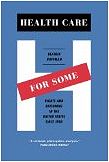
Health Care for Some: Rights and Rationing in the United States since 1930
by Beatrix Hoffman
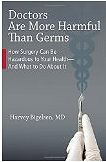
Doctors Are More Harmful Than Germs: How Surgery Can Be Hazardous to Your Health - And What to Do About It
by Harvey Bigelsen M.D.
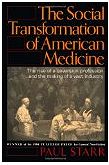
The Social Transformation of American Medicine: The rise of a sovereign profession and the making of a vast industry
by Paul Starr
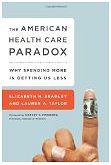
The American Health Care Paradox: Why Spending More is Getting Us Less
by Elizabeth H. Bradley
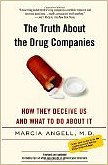
The Truth About the Drug Companies: How They Deceive Us and What to Do About It
by Marcia Angell
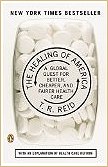
The Healing of America: A Global Quest for Better, Cheaper, and Fairer Health Care
by T. R. Reid

Racketeering in Medicine: The Suppression of Alternatives
by James P. Carter
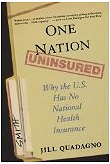
One Nation, Uninsured: Why the U.S. Has No National Health Insurance
by Jill Quadagno

Remedy and Reaction: The Peculiar American Struggle over Health Care Reform
by Paul Starr
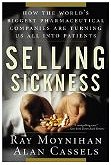
Selling Sickness: How the World's Biggest Pharmaceutical Companies Are Turning Us All Into Patients
by Ray Moynihan and Alan Cassels
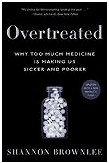
Overtreated: Why Too Much Medicine Is Making Us Sicker and Poorer
by Shannon Brownlee
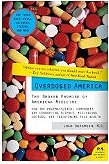
Overdosed America: The Broken Promise of American Medicine
by John Abramson

Questioning Chemotherapy
by Ralph W. Moss
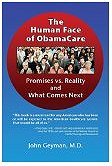
The Human Face of Obamacare: Promises vs. Reality and What Comes Next
by John Geyman M.D.

American Healthscare: How The Healthcare Industry Scare Tactics Have Screwed Up Our Economy - And Our Future.
by Richard Young MD
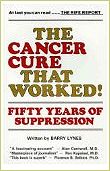
The Cancer Cure That Worked: 50 Years of Suppression
by Barry Lynes
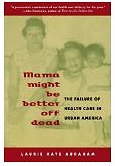
Mama Might Be Better Off Dead: The Failure of Health Care in Urban America
by Laurie Kaye Abraham

Hippocrates Weeps: An Indictment of Changes for the American Health-Care System
by J. William Evans MD
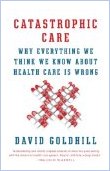
Catastrophic Care: How American Health Care Killed My Father--and How We Can Fix It
by David Goldhill
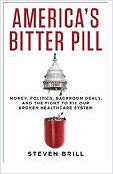
America's Bitter Pill: Money, Politics, Back-Room Deals, and the Fight to Fix Our Broken Healthcare System
by Steven Brill
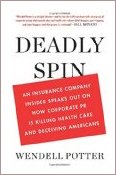
Deadly Spin: An Insurance Company Insider Speaks Out on How Corporate PR Is Killing Health Care and Deceiving Americans
by Wendell Potter
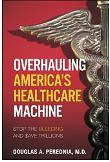
Overhauling America's Healthcare Machine: Stop the Bleeding and Save Trillions
by Douglas A. Perednia

Worried Sick: A Prescription for Health in an Overtreated America
by Nortin M. Hadler M.D.

Healthcare Disrupted: Next Generation Business Models and Strategies by Jonathan Bush
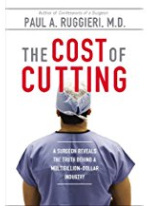
The Cost of Cutting: A Surgeon Reveals the Truth Behind a Multibillion-Dollar Industry by Paul A. Ruggieri
 |
 |